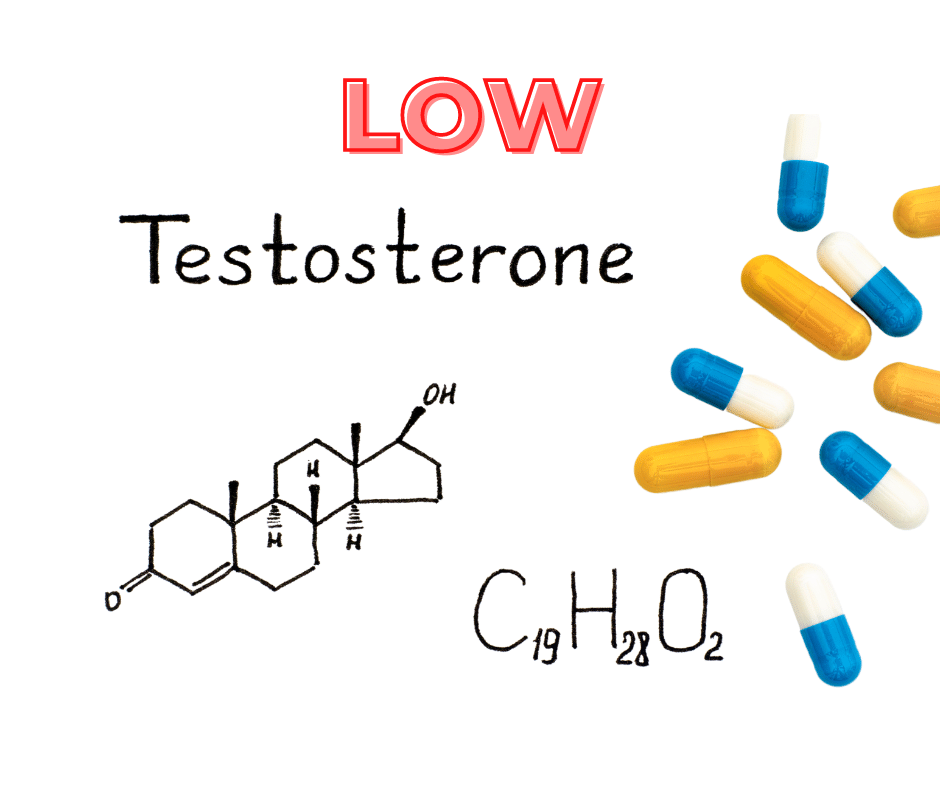
You probably think of masculinity, strength, and sex drive when you think of testosterone. Testosterone plays a significant role in men’s health, and low testosterone can certainly impact erectile function, but it’s not that simple.
Testosterone levels tend to decrease with age. Levels are highest by age 20 to 30 and slowly go down by up to 1% per year after age 30 to 35.
When testosterone levels drop too low, men can experience sluggish libido and erectile dysfunction (ED). Low levels can also contribute to fatigue, mood changes, reduced muscle mass, and loss of bone strength.
The Role of testosterone
Testosterone is the hormone responsible for the development of male sexual characteristics.
It also plays several important roles in
- Muscle size and strength
- Fat distribution
- Bone growth and strength
- Sex drive (libido)
- Sperm production
- Mood
To make testosterone, the brain and pituitary gland, a small gland at the base of the brain, control testosterone production by the testes. A “feedback loop” closely regulates the amount of hormone in the blood. When testosterone levels rise too high, the brain sends signals to the pituitary to reduce production.
Low testosterone
Low Testosterone (low-t) is classified as an abnormally low testosterone level in the blood. If your testicles keep making less testosterone than usual, your blood testosterone levels will fall.
It can also occur at any age due to conditions affecting the testicles or the pituitary gland in the brain. However, It’s often part of the ageing process in most men and, therefore, common in older men.
Other risk factors for low testosterone include:
- Obesity
- Metabolic syndrome (high blood pressure, high blood sugar, unhealthy cholesterol levels, and belly fat)
- Use of medications such as antidepressants and narcotic pain medications
- Chronic diseases
- Sleep disorders
- Stress
- Alcoholism
- Anabolic steroids
Common symptoms of low testosterone in men include:
- Loss of spontaneous morning
- Low libido (sex drive)
- Erectile dysfunction (issues getting and maintaining an erection)
- Enlarged painful breasts (gynecomastia)
- Infertility – low sperm count
Uncommon symptoms of low testosterone
- Reduced testicle size
- Reduced energy or mood
- Decrease in beard and body hair growth.
- Decrease in muscle mass and strength
- Loss of bone density (osteoporosis).
- Hot flushes and night sweats
Although many symptoms may indicate low-t, total blood testosterone level is the most important measure of testosterone deficiency. To make a diagnosis, your doctor will use specific signs and symptoms in addition to your testosterone blood level.
Low testosterone and ED
Although low testosterone can cause ED, it’s caused by other factors in most cases. Many men with low-t levels have no issues getting or maintaining an erection, whilst guys with healthy testosterone levels can find it hard to get an erection during sex.
Testosterone does stimulate the tissues of the penis to produce nitric oxide, which relaxes blood vessels and initiates processes that form an erection. If your testosterone levels get too low, this can result in issues getting an erection and maintaining an erection.
In addition, low testosterone can decrease spontaneous erections, reducing erections whilst sleeping and “morning wood”.
Low Testosterone and sex drive
Men with low-t don’t always have issues with sex drive. However, if you lower your testosterone levels far enough, you will experience some decline in sex drive.
It is important to note that if you feel your sex drive has dropped, low testosterone may not be the cause.
As we move through life, other factors such as stress, sleep, mental health, and chronic illnesses negatively impact your sex drive. Not only that, sex opportunities may also be changing.
If you’re experiencing a low sex drive and other lifestyle factors are not contributing to it, you may want to consider getting your testosterone levels tested.
How to increase your testosterone levels naturally?
Exercise and lift weights
Exercise and, more importantly, resistance exercise is the most effective way to boost your testosterone both in the short and long term.
Several studies have shown that those who exercised regularly increased testosterone levels and increased fitness and reaction time as an additional benefit.
All forms of exercise may increase testosterone levels; however, weight lifting and high-intensity interval training are the most effective.
Maintain a healthy weight
Obesity and low testosterone are closely linked. If you’re obese, you are more likely to have low testosterone levels, and if you have low testosterone levels, you are more likely to be obese.
This is because your fat cells metabolise testosterone to estrogen, resulting in a lowering of your testosterone levels. Also, being obese reduces the levels of a protein that carries testosterone in the blood (SHBG). Less SHBG means less testosterone.
It sounds like a catch-22, but losing weight through exercise and correct nutrition can increase your testosterone.
What you eat and how much you eat plays a vital role in testosterone and other hormone levels. Constant dieting and overeating can negatively disrupt testosterone levels. A diet of whole foods is best with a healthy balance of fats, protein and carbs.
Stress levels
Stress has many unwanted effects on the body, and reducing testosterone levels is one of them.
Long term stress elevates levels of the hormone cortisol, which can quickly reduce testosterone. Increased cortisol levels can also affect food intake and weight gain, further affecting your testosterone.
Ideally, remove repetitively stressful events from your life. Focus on diet and exercise, and ensure you get a good night sleep. All of these will give your testosterone levels a boost.
Sleep
Getting a good night sleep is essential for your body’s optimal performance. It can also have significant effects on your testosterone levels.
The amount of sleep each person requires varies. However, research has shown that sleeping less than 5 hours per night is linked to a 15% reduction in testosterone levels. Another study suggested that for every additional hour of sleep you get, testosterone levels rise 15% higher on average.
Although you may do fine on less sleep, sleeping 7-10hours per night is best for long term health and testosterone levels.
Testosterone booster supplements
Many supplements on the market claim to boost your testosterone levels, but scientific studies support only a few.
Out of all vitamins and minerals available, the research on testosterone shows vitamin D and zinc supplements may be best. Other micronutrients may also have benefits but require further research.
When it comes to herbs, ashwagandha (also known as Withania) has the most research. Studies on 300mg taken twice daily showed increased testosterone levels and decreased cortisol.
Tribulus is another herb that has long been touted to enhance sexual function and libido. However, studies haven’t found it effective at increasing testosterone levels in humans.
Testosterone replacement therapy (TRT)
In most cases, you’ll need to have both low levels of testosterone in your blood and several symptoms of low testosterone to go on replacement therapy.
Even if your levels are low and you have symptoms, low-t therapy is not always the first course of action. If your doctor can identify the source for declining levels—for instance, weight gain or a particular medication—they may first address that problem.
If you and your doctor think testosterone replacement therapy is right for you, improvement of symptoms is likely to occur within 4-6 weeks of initiating therapy. However, changes to muscle mass may take from three to six months.
If erectile function has been a problem, testosterone therapy might not fix it. In fact, it might increase your sex drive but not allow you to act on it. You may also need medication or other therapy for difficulty getting or maintaining erections.
Do you think you might be dealing with low testosterone levels?
Take our ten-question Yes/No answer assessment, in less than a minute you’ll see if it’s worthwhile getting your testosterone levels tested.
If you’ve got any questions regarding this post drop us an email [email protected]

